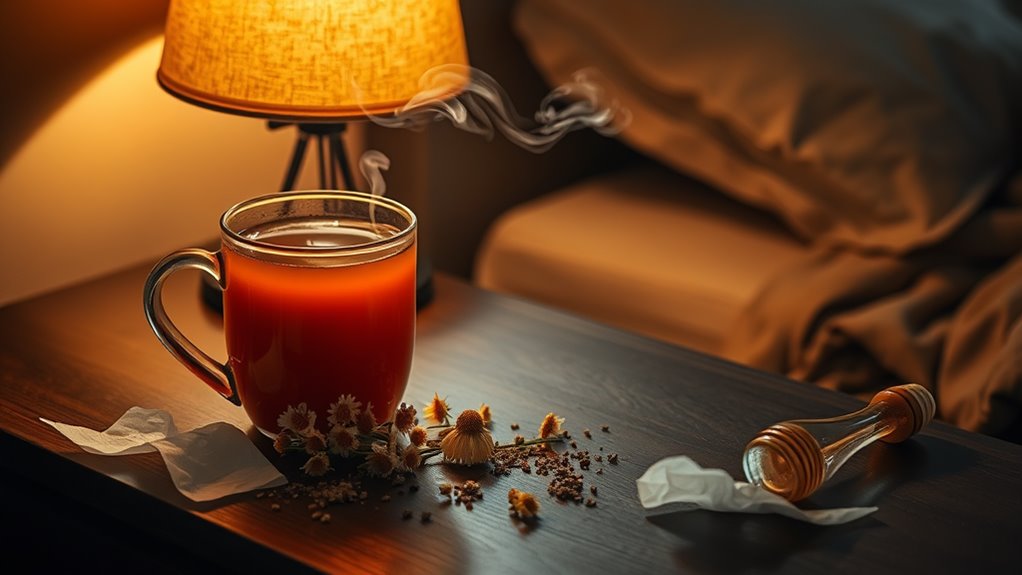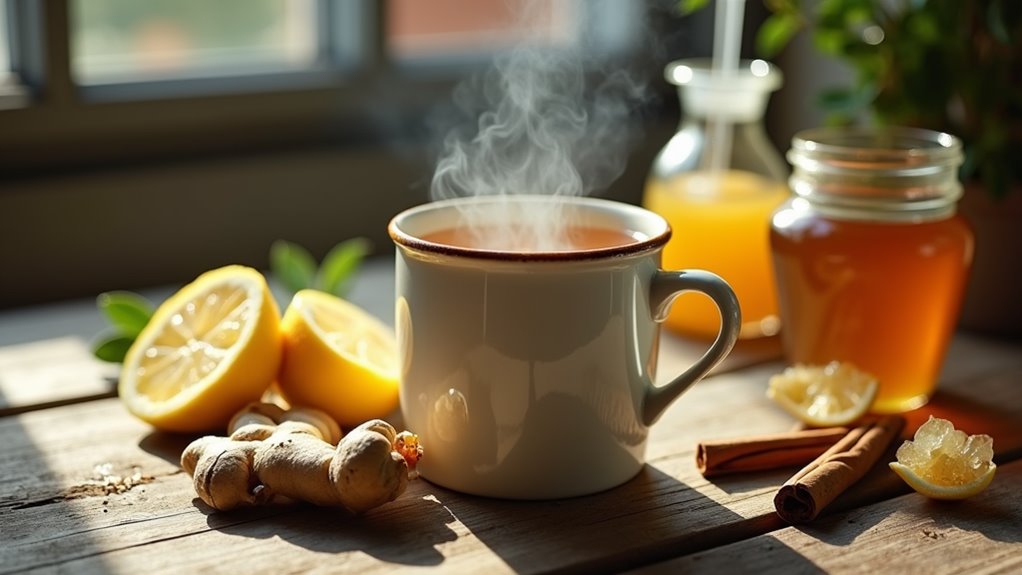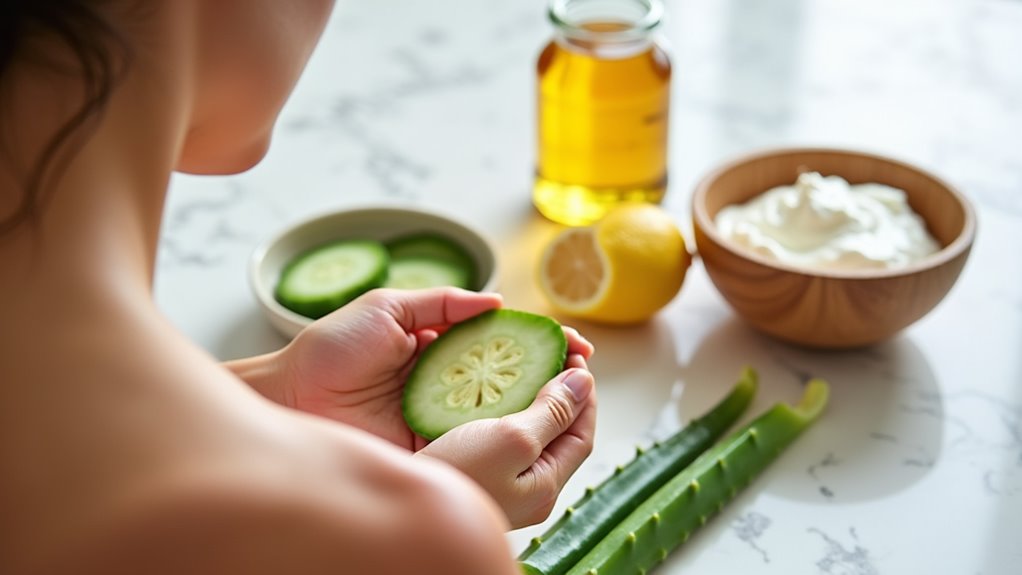Coughing at Night. This One Tea Helps You Sleep!
If you’re struggling with nighttime coughing, a soothing herbal tea blend can help you drift off to sleep naturally. Traditional ingredients like thyme, marshmallow root, and slippery elm bark work together to calm irritated airways, break up mucus, and create a protective coating in your throat. You’ll get the best results by steeping your tea for 5-7 minutes and adding honey when it’s warm. Discover the ancient wisdom and modern science behind this time-tested remedy.
Why Nighttime Coughing Disrupts Your Sleep
When you’re trying to get a good night’s rest, persistent coughing can make it nearly impossible to fall asleep or stay asleep throughout the night.
Like many of us who struggle with nighttime coughing, you’ll find that this irritating symptom triggers a frustrating cycle of sleep disruption.
Your coughing fits don’t just wake you up – they can also disturb your partner and leave you feeling exhausted the next day.
The constant throat irritation forces your body to stay alert, preventing you from reaching the deeper sleep stages you need for proper rest and recovery.
As mucus accumulates in your throat while lying down, you’re more likely to experience increased coughing, especially if you’re dealing with post-nasal drip, allergies, or a respiratory infection.
The Ancient History of Herbal Teas for Respiratory Relief
Throughout human civilization, people have turned to herbal teas as a natural remedy for respiratory issues. Your ancestors discovered powerful healing properties in plants like thyme, ginger, and eucalyptus, which they brewed into soothing teas.
Traditional Chinese medicine practitioners have used these remedies for over 4,000 years, while ancient Egyptians documented herbal treatments on papyrus scrolls dating back to 1500 BCE.
You’re part of this long-standing tradition when you reach for herbal tea to ease your cough. Native Americans relied on wild cherry bark tea, while European monasteries preserved knowledge of herbs like horehound and marshmallow root.
These time-tested remedies have passed from generation to generation, offering relief to countless people just like you who’ve struggled with nighttime coughs.
Key Ingredients in Cough-Suppressing Tea Blends
Several powerful natural ingredients make up the most effective cough-suppressing tea blends.
When you’re looking for relief from nighttime coughing, you’ll want to choose teas that contain these proven ingredients that have helped people for generations.
-
Thyme contains expectorant compounds that help break up mucus and calm bronchial spasms.
-
Marshmallow root coats and soothes irritated throat tissue while reducing inflammation.
-
Licorice root provides natural sweetness while helping to thin mucus secretions.
-
Slippery elm bark creates a protective layer in your throat, reducing cough triggers.
You’ll find these ingredients combined in many traditional tea blends, often enhanced with honey or ginger for extra soothing properties.
These natural remedies can help you get the rest you need without harsh medications.
How to Prepare the Perfect Bedtime Cough Relief Tea
Making the most effective cough relief tea requires proper preparation techniques to maximize the therapeutic benefits of these natural ingredients. Start by boiling fresh, filtered water to preserve the tea’s pure taste.
Once it’s bubbling, let it cool for 30 seconds before pouring over your chosen herbs. You’ll want to steep your tea for the right duration – 5 minutes for most herbal blends, though honey-based mixtures need 7-10 minutes to fully release their soothing properties.
Cover your cup while steeping to retain the essential oils. Add honey when the tea is warm, not hot, to maintain its healing properties. If you’re using ginger or thyme, gently crush them before steeping to release more active compounds.
Sip your tea slowly about an hour before bedtime for the best results.
Scientific Evidence Behind Tea’s Cough-Calming Properties
While traditional remedies have long endorsed tea for nighttime cough relief, modern research now validates these ancient practices with scientific evidence.
You’ll find that numerous studies have confirmed tea’s effectiveness in soothing irritated airways and reducing nighttime coughing episodes.
Research has revealed four key mechanisms behind tea’s cough-calming properties:
- Theobromine in tea acts as a natural cough suppressant by blocking sensory nerve activation.
- Hot liquid temperatures help break down mucus and reduce throat inflammation.
- Antioxidant compounds like flavonoids decrease respiratory tract irritation.
- Steam inhalation while drinking tea helps moisturize airways and thin secretions.
These findings support what many cultures have known for generations – tea isn’t just comforting, it’s scientifically proven to help you breathe easier and rest better.





